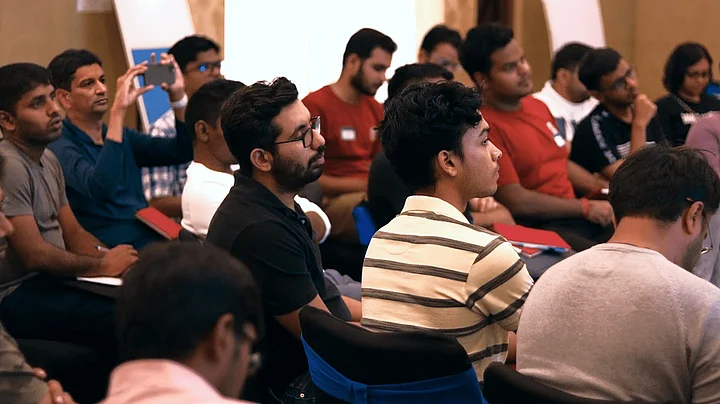Is getting an MBA still the default option for career development or changing one’s career trajectory? An MBA has its benefits, but it is not an easy choice for many, given the hefty fees. To add to it, the time spent in an MBA equates to time spent away from employment, which translates to a loss of income for working professionals.
On the other side of the table, recruiters at high-growth companies are valuing skills and the ability to keep learning over management degrees. This trend points toward a rather gloomy scenario for the future of management colleges, which are no longer the first choice of candidates and recruiters.
While it is easy to say that professionals ought to be upskilling and building their network in order to find opportunities, the lack of an MBA-like endorsement makes it hard for them to stand out in the crowd.
And that is precisely what Stoa wants to facilitate by forming the highly selective Stoa Charter, a cadre of elite business talent who are early in their careers.
Building on the success of its online alternative-MBA program which has 600+ alumni, the Stoa Charter is a CFA-like model applied to business education. Candidates inside the Stoa program will now be able to prove their competence and earn their Stoa Level 1 / Stoa Level 2 to enter the charter. This will help professionals get all the benefits of an MBA without sacrificing their current work, struggling with the fixed schedule of an MBA program, or paying hefty fees.
Signing up for Stoa will give one access to 50+ learning sprints across multiple domains (Marketing, Product, Finance, Leadership, Strategy & Operations, and General Management skills). Each learning sprint will be 1-week long with a mix of self-paced learning over weekdays and group-based learning over weekends. Candidates in the Stoa Program can choose the domains they want to specialize in and select sprints accordingly. This enables professionals to build out their unique skill stack.
“Stoa connected me to people who've had similar career trajectories but more experience. Conversations with them helped me gain clarity on my own career path. If not for Stoa, I wouldn't have visited Bangalore for a week last year and wouldn't have met the person who offered me a job and is now my boss.”Vikrant Mehra, Fellow, Stoa Cohort 2
Backed by founders of Zerodha, CRED, Udemy, Redbus, Myntra, and other Indian startups, the Stoa Charter derives its prestige and value from the fact that the bar to entry is high. Not every candidate in the Stoa Program gets through. Each level certifies a certain level of competency and capability to bring value to a business. These are awarded to individuals who complete the sprints and clear the test for the respective level. One passes each level by solving case studies that mimic the challenges businesses face today and pitching solutions to a panel of judges who test for subject-specific skills, way of thinking, and communication skills.
L1 trains people on ‘professional hygiene’ (commercial awareness, writing skills, communication, and analytical thinking) and business fundamentals. To receive L1 charter, candidates will solve and present the case for a given business problem in front of a jury to show their problem-solving skills and thought processes.
L2 is for learning domain-specific skills and clearing this is based on how one solves business problems in that domain. Let's say someone wants to get into marketing but has less or no marketing experience: Clearing L2 in the marketing domain will prove that they can take on a marketing role even without previous experience because Stoa would have trained and tested the candidates with enough industry problems.
Something interesting to note about the Stoa program is that it's helpful for most industries. For those who don't know what profession is right for them yet, there are a series of specializations they can explore in different domains like strategy, marketing, and operations. Not everyone who pursues the Stoa program needs to make a dramatic change. So it's also ideal for people who want to hasten the pace of their professional development within a certain domain, or at their current company.
Given that the 1-year access to the Stoa Program is priced at INR 2.5L + GST, those sitting on the fence about doing an MBA now have a worthy alternative to consider. It will be interesting to see how the business education space in India develops and how MBA colleges respond to this challenge.
To know more about Stoa, visit here.
(At The Quint, we question everything. Play an active role in shaping our journalism by becoming a member today.)
